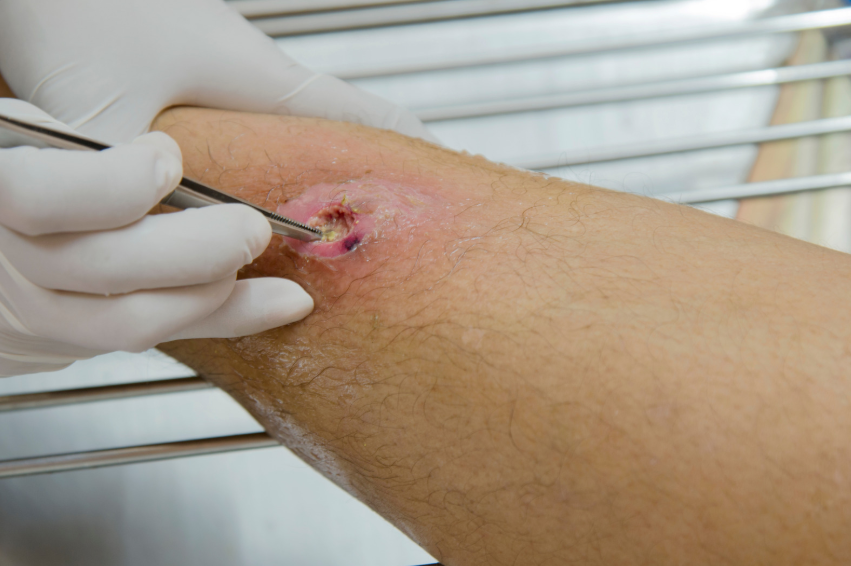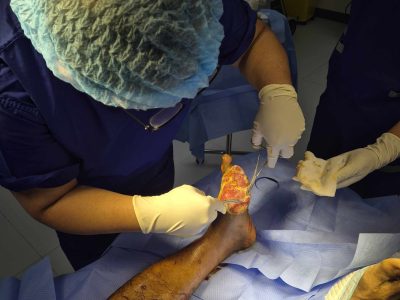Chronic wounds are a persistent health challenge, often affecting individuals with underlying conditions such as diabetes, poor circulation, or immobility. These types of wounds resist standard healing processes and can last for weeks, months, or even years without proper intervention. One of the most effective treatments available for chronic wounds is wound debridement. This procedure involves removing dead or infected tissue to promote healing and prevent infection. At the forefront of this essential service is Kalingap Wound Care Clinic, known for its expertise and dedication in providing advanced wound debridement solutions that accelerate recovery and ensure patient safety.
Understanding Chronic Wounds
Chronic wounds are wounds that fail to progress through the normal stages of healing. Common examples include diabetic foot ulcers, pressure sores (also called bedsores), venous leg ulcers, and non-healing surgical wounds. These wounds often result from underlying health issues that impair blood circulation, reduce immune response, or increase pressure on specific areas of the body. Left untreated, chronic wounds can lead to serious complications, including infections, amputations, and diminished quality of life. Wound debridement plays a crucial role in reversing this cycle by preparing the wound bed for recovery.
What Is Wound Debridement?
Wound debridement is the medical process of removing non-viable, necrotic, or infected tissue from a wound to stimulate healing. It is a foundational procedure in chronic wound management. There are several types of wound debridement, each suited to specific wound conditions. Surgical debridement is performed by a healthcare provider to quickly remove dead tissue. Autolytic debridement uses the body’s own enzymes and moisture to liquefy dead tissue. Enzymatic debridement applies topical agents to dissolve necrotic tissue. Mechanical debridement involves using gauze or specialized devices to physically remove tissue, while ultrasonic debridement uses sound waves for a less invasive approach. Kalingap Wound Care Clinic offers a wide range of these techniques, ensuring patients receive personalized care tailored to their specific wound condition.
How Wound Debridement Helps in Treating Chronic Wounds
Wound debridement is not just about cleaning a wound—it is a transformative step that sets the stage for proper healing. By eliminating dead or infected tissue, wound debridement reduces the risk of infection and lowers bacterial load. This process creates a healthier wound bed that promotes the growth of new tissue and accelerates re-epithelialization. Furthermore, wound debridement improves the effectiveness of topical medications and advanced dressings by allowing them to penetrate deeper and act directly on viable tissue. It also enhances oxygen and nutrient delivery to the affected area, both of which are vital for wound closure. At Kalingap Wound Care Clinic, each debridement procedure is done with precision, ensuring that the wound is optimally prepared to heal efficiently.
Clinical Evidence and Expert Opinion
Numerous clinical studies support the effectiveness of wound debridement in chronic wound management. Research consistently shows that wounds receiving regular debridement heal significantly faster than those that do not. Debridement has been shown to decrease wound size more rapidly and reduce the likelihood of infection. Leading wound care experts agree that timely and consistent wound debridement is essential for optimal outcomes. Kalingap Wound Care Clinic combines this evidence-based approach with skilled practitioners and modern tools, offering patients the highest standard of care in Quezon City and surrounding areas.
Risks of Skipping Debridement in Chronic Wound Care
Ignoring the need for wound debridement in chronic wound care can lead to severe consequences. Without debridement, necrotic tissue remains in the wound, serving as a breeding ground for bacteria and infection. This can result in prolonged healing, systemic infections, sepsis, or even amputation in severe cases. Additionally, chronic wounds that are not debrided can lead to longer hospital stays and increased healthcare expenses. Patients may also suffer from ongoing pain, limited mobility, and a lower quality of life. Wound debridement provided by Kalingap Wound Care Clinic minimizes these risks, offering a proactive solution that safeguards patient health and well-being.
Choosing the Right Wound Care Provider
Selecting a provider experienced in wound debridement is critical to achieving positive outcomes for chronic wounds. Patients should seek clinics with specialized knowledge, trained staff, and access to modern wound care technology. Interdisciplinary collaboration is also important, ensuring that each aspect of the patient’s health is considered during treatment. Kalingap Wound Care Clinic stands out as the best choice for wound debridement in Quezon City, with a proven track record of excellence, patient-centered care, and commitment to healing. Their team of specialists works closely with patients to deliver personalized treatment plans that promote faster recovery and long-term results.
Takeaway
Wound debridement is a vital procedure in the treatment of chronic wounds. It serves as the foundation for healing by removing dead tissue, preventing infection, and enabling the growth of new, healthy skin. Patients dealing with chronic wounds should not delay care, as early intervention can make all the difference in recovery. Kalingap Wound Care Clinic offers expert wound debridement services that set the standard in quality care and effective healing. Trusting the right professionals ensures that chronic wounds don’t just improve—they heal.
FAQs
What happens during a wound debridement procedure?
During wound debridement, a healthcare professional removes dead or infected tissue from the wound. This may involve surgical tools, specialized dressings, or enzymatic ointments, depending on the wound type and severity. At Kalingap Wound Care Clinic, patients are evaluated thoroughly before the procedure to determine the most effective method.
Is wound debridement painful?
Some discomfort may be experienced, especially with surgical or mechanical debridement. However, pain management strategies, including local anesthesia or sedation, are used to minimize discomfort. Kalingap Wound Care Clinic prioritizes patient comfort during every stage of treatment.
How long does it take for a debrided wound to heal?
Healing time varies depending on the wound’s size, depth, and underlying health conditions. With proper wound debridement and care, many patients notice significant improvements within a few weeks. Regular follow-up at Kalingap Wound Care Clinic ensures that progress is monitored and supported throughout.
Can wound debridement be done at home?
While minor debridement methods like autolytic or enzymatic debridement may be managed at home under supervision, professional evaluation is essential. Improper wound care can lead to complications. It is always best to consult professionals like those at Kalingap Wound Care Clinic for safe and effective wound debridement.







